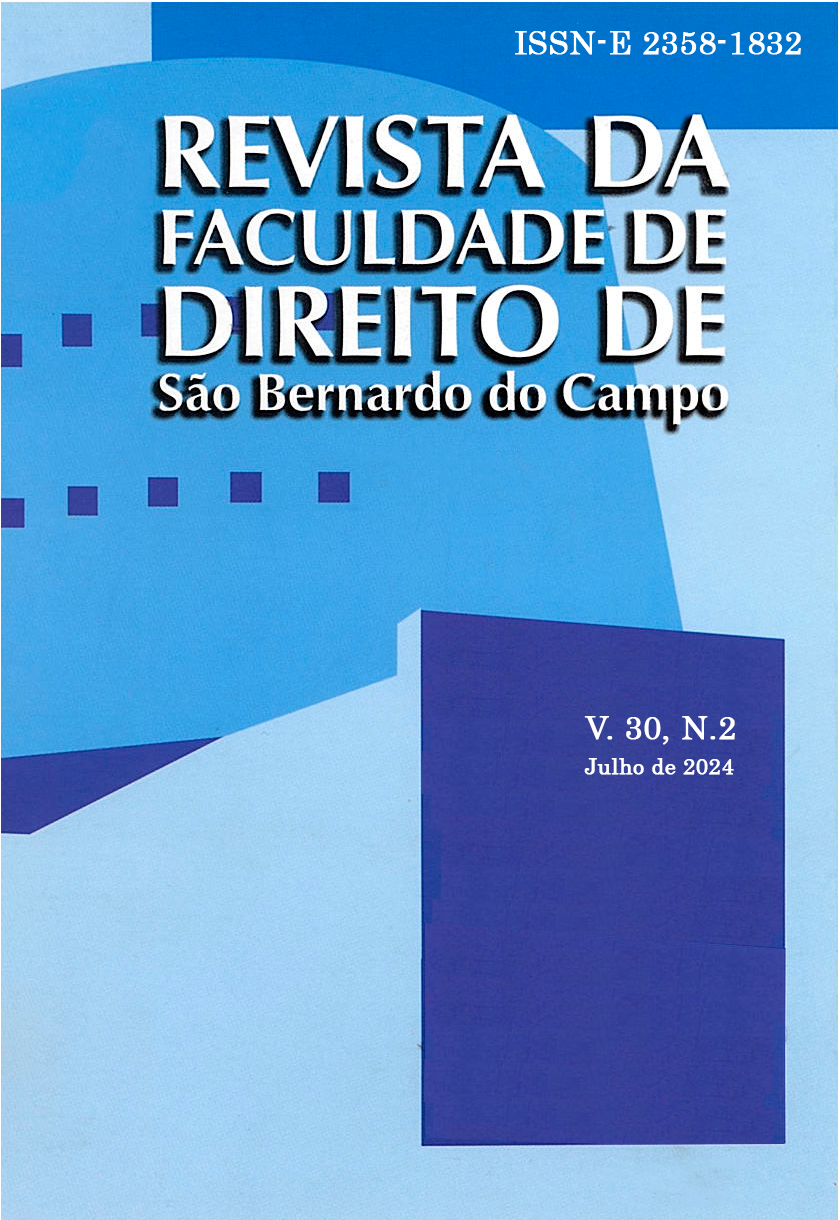EFEITOS JURÍDICOS DO USO DA EMENTA DESFUNDAMENTADA OU DESCONTEXTUALIZADA NAS DECISÕES JUDICIAIS
Palavras-chave:
Antinomia, Normas, Precedentes, Segurança jurídica, Enunciação aforizanteResumo
Após a reforma advinda do código de processo civil, deu-se grande privilégio à sistemática de precedentes, de forma que passaram a tomar espaço de maior protagonismo junto ao sistema jurídico brasileiro, antes claramente influenciado em maior escala pelo sistema civil law. Tal modificação tem por base, dentre outros motivos, a observação da experiência internacional no respeito às decisões anteriormente tomadas, entregando coerência ao sistema, todavia, observa-se cada vez mais a tendência do judiciário de observação da ementa ao invés de se observar o julgado como um todo, o que acarreta uma série de problemas. Usando tal problemática de fundo, bem como com a utilização da teoria das “frases sem texto” do linguista francês Dominique Maingueneau, objetiva-se com o uso da interdisciplinaridade, apresentar método capaz de demonstrar como o uso das ementas pode ser prejudicial ao judiciário como um todo, bem como, apresentar as soluções para tal situação pragmática. Para método de abordagem, utilizou-se de pesquisa qualitativa com método hipotético-dedutivo, juntamente de pesquisa bibliográfica, concluindo que o uso de uma ementa dentro de um julgado de forma desfundamentada é nulo, enquanto o julgado que se utiliza de ementa de forma descontextualizada é anulável.
Referências
ARENHART, Sérgio Cruz; MARINONI, Luiz Guilherme; MITIDIERO, Daniel. Novo Código de Processo Civil Comentado. 1ª ed. São Paulo. Revista dos Tribunais. 2015.
BARONAS, Roberto Leiser. Enunciação aforizante versus textualizante: notas sobre tensões estruturais e extratextuais in Revista Estudos Linguisticos. Volume 43, nº 3. São Paulo. GEL – Grupo de Estudos Linguisticos do Estado de São Paulo. 2014.
CÂMARA, Alexandre Freitas. O novo processo civil brasileiro. São Paulo. Ed. Atlas. 3ª Edição. 2016.
CARVALHO, Aurora Tomazini de. Teoria Geral do Direito: o Constructivismo-lógico-Semântico. São Paulo Noeses. 2016.
CARVALHO, Paulo de Barros. Direito tributário, linguagem e método. 6ª ed. São Paulo. Noeses. 2015.
CAVALCANTE, Mantovani Colares. Frases sem texto: a utilização de precedentes a partir de ementas in Texto e contexto no direito tributário. Coord. Paulo de Barros Carvalho. São Paulo. Noeses. 2020.
FLUSSER, Vilém. Língua e realidade. 2ª ed. São Paulo. Annablume, 2004.
MAINGUENEAU, Dominique. Frases sem texto. Trad. Sírio Possenti. São Paulo. Parábola Editorial. 2014.
SOUZA, Priscila de. Intertextualidade na linguagem jurídica: conceito, definição e aplicação in Constructivismo Lógico-Semântico. Vol. 2. Coord. Paulo de Barros Carvalho. São Paulo. Noeses. 2018.
STRECK, Lênio Luiz. Dicionário de Hermenêutica - Quarenta temas fundamentais da teoria do direito à luz da crítica hermenêutica do direito. Belo Horizonte. Editora Letramento. 2017.
TOMÉ, Fabiana Del Padre. A prova no direito tributário. 4ª ed. São Paulo. Noeses. 2016.
Downloads
Publicado
Como Citar
Edição
Seção
Licença
TERMO DE CESSÃO DE DIREITOS AUTORAIS
Pelo presente instrumento jurídico particular, na condição legal de autor(a) e detentor(a) dos direitos autorais sobre a obra ora apresentada para avaliação, transfiro integralmente, pelo presente Termo de Cessão de Direitos Autorais, à Faculdade de Direito de São Bernardo do Campo – Autarquia Municipal, sediada na Rua Java, 425, Jardim do Mar, São Bernardo do Campo, SP, CEP 09050-450, inscrita no Cadastro Nacional de Pessoa Jurídica sob o número 59.108.100/0001-89, os direitos de edição, publicação, ditribuição, reprodução em qualquer formato (impresso, digital ou qualquer outra plataforma) e forma de comercialização, bem como todos os elementos que possam conter, patrimoniais ou não, referentes à esta obra, com fundamento nos artigos 28 a 33 da Lei Federal nº 9.610, de 19 de fevereiro de 1998 (Lei de Direitos Autorais), para a finalidade específica de publicação na Revista da Faculdade de Direito de São Bernardo do Campo e Repositório Eletrônico, podendo ser o artigo livremente consultado e reproduzido.
Fico ciente, ainda, que tal transferência se dá por prazo de forma definitiva e irretratável.
Estou ciente de que o envio da obra implica na concordância total com o acima exposto.





